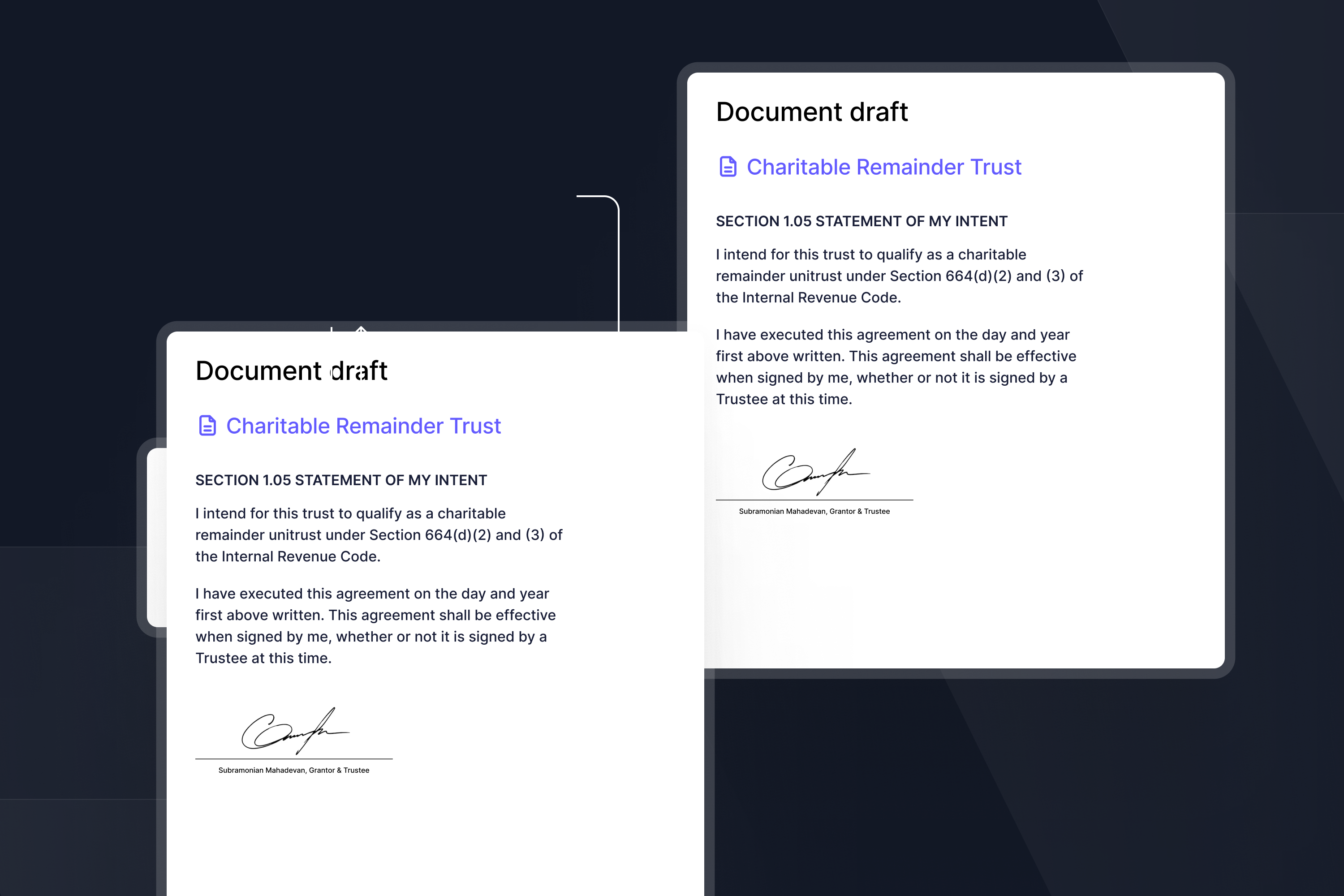
FEATURED ARTICLE
Tax Planning for Realized Gains and Ordinary Income
Tax planning strategies for realized gains and ordinary income

Tax planning strategies for realized gains and ordinary income


If you earn income in Virginia, you know you’ll lose something to taxes. But how much? It’s important to understand your state’s income tax and how it will impact your financial future, not least because that knowledge will empower you to take action to reduce your tax bill today.
In this article, we’ll explain what the income tax is and how income is taxed in Virginia. We’ll also show you different tax-planning strategies that can significantly reduce your income tax liability:
We’ll explore the specifics of Virginia’s income tax shortly. But first, the basics. Income taxes are taxes imposed on individuals or entities that earn income. For purposes of this article, we’ll be focusing on “ordinary income,” which is the income that you earn from work or from your small business, as well as rental income, interest, royalties, and retirement income. Think of ordinary income as the money you earn day in and day out. Unlike other types of income such as long-term capital gains or qualified dividends, which can get preferential tax treatment, your ordinary income gets no special tax perks and typically is taxed at a relatively high tax rate.
The amount of income tax a person or entity pays depends on their income level. The federal income tax and most state versions are “progressive,” which means that the share of your income that you will pay in taxes goes up as you earn more, though some states levy a fixed percentage, or “flat,” income tax.
The federal income tax is a tax that the United States government levies on the annual earnings of individuals, corporations, trusts, and other legal entities. This tax is progressive, which means the tax rate you pay — the percentage of each additional dollar that goes to the government — increases as your income increases. For individuals, the income tax rates on ordinary income (as distinguished from capital gains) start at 10% and increase up to 37% as your income tax bracket increases.
The amount of tax you owe each year is calculated based on your gross income, which includes wages, interest, dividends, and other earnings.
| Taxable Income (Single Filers) | Taxable Income (Married Filing Jointly) | Tax Rate on This Income |
|---|---|---|
| $0 to $12,400 | $0 to $24,800 | 10% |
| $12,400 to $50,400 | $24,800 to $100,800 | 12% |
| $50,400 to $105,700 | $100,800 to $211,400 | 22% |
| $105,700 to $201,775 | $211,400 to $403,550 | 24% |
| $201,775 to $256,225 | $403,550 to $512,450 | 32% |
| $256,225 to $640,600 | $512,450 to $768,700 | 35% |
| $640,600 or more | $768,700 or more | 37% |
What would these numbers look like in the real world? Let’s consider a single individual whose ordinary income is $350,000. This individual would qualify for the $16,100 standard deduction, reducing his or her taxable income to $333,900, putting them in the 35% tax bracket. As a result of the progressive tax system, however, not every dollar they earn will be taxed at that rate. As you can see from the table, the 35% bracket begins at $256,225 of income. This means that the dollars the individual earns over $256,225 will be taxed at 35%. But dollars below that amount will be taxed at the rate corresponding to the brackets they fall into.
So, for this individual:
Adding these amounts together, the individual would pay a total of $86,794 of federal income tax in 2025.
You now understand how federal income tax rates apply! What about state taxes?
Unsure which tax strategy best fits your gains? Our experts can help you identify the most efficient way to reduce your capital gains taxes.
The Virginia income tax is a state-level tax imposed on the income of individuals, businesses, or other legal entities. Like the federal income tax, the Virginia income tax is progressive, meaning the rate of taxation increases as taxable income increases.
In 2025, the Virginia state income tax rates range from 2.00% to 5.75%.
Moreover, Virginia also has a standard deduction that is $8,000for single filers, and $16,000 for married filing jointly.
| Taxable Income (Single Filers) | Taxable Income (Married Filing Jointly) | Tax Rate on This Income |
|---|---|---|
| $0 to $3,000 | $0 to $3,000 | 2% |
| $3,000 to $5,000 | $3,000 to $5,000 | 3% |
| $5,000 to $17,000 | $5,000 to $17,000 | 5% |
| $17,000 or more | $17,000 or more | 5.75% |
Let’s consider an individual who has a taxable income of $350,000 in Virginia. This individual qualifies for an $8,000 standard deduction, reducing their taxable income to $342,000, putting them in the 5.75% tax bracket. However, Virginia, like the federal government, uses a progressive tax system, which means that different portions of the individual’s income are taxed at the different rates corresponding to the brackets they fall into.
Here’s how it breaks down for this individual:
Adding these amounts together, the individual would pay a total of $19,346.25 in Virginia state income taxes for 2025.
Income tax is the biggest tax many individuals face. Accordingly, it’s critical to identify strategies that can reduce this tax. Tax planning is a strategic approach designed to reduce a person’s (or a company’s) tax liability by leveraging various tax benefits and allowances. It’s about understanding the tax implications of your financial decisions so you can minimize your taxes and, ultimately, keep more of your hard-earned money. That might involve making investments that offer tax benefits, choosing the right type of retirement account, taking advantage of deductions and credits, or investing in a tax-advantaged account.
Several different tax planning strategies can help you reduce your income tax liability in Virginia. Here are the five we consider most advantageous:
You can also compare the quantitative returns and tax savings of these different strategies using our ordinary income tax savings calculator and customize it to your own situation.
Federal and state income taxes can significantly reduce the wealth your family keeps every year. Fortunately, there are several strategies available to minimize these taxes. Read more here and check out our Guided Planner tool, where we’ll point you toward the strategies that might apply to you.
We’ve built a platform to give everyone access to the tax and wealth-building tools typically reserved for wealthy individuals with a team of accountants and lawyers. We make it simple and seamless for our customers to take advantage of these hard-to-access tax-advantaged structures. With Valur, you can build your wealth more efficiently at less than half the cost of competitors.
From picking the best strategy to taking care of all the setup and ongoing overhead, we make things simple. The results are real: We have helped create more than $3 billion in additional wealth for our customers. If you would like to learn more, please feel free to explore our Learning Center. You can also see your potential tax savings with our online calculators or schedule a time to chat with us!